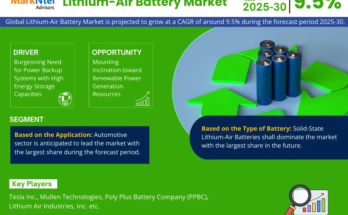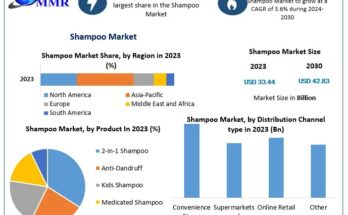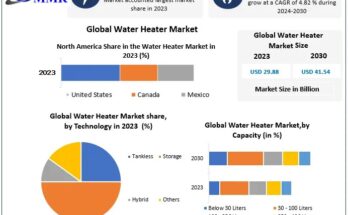According to the report from TechSci Research titled “United States Electric Vehicle Market – By Region, Competition, Forecast & Opportunities, 2028,” the electric vehicle (EV) market in the United States is being driven by rapid technological advancements, notably in battery efficiency and capacity. This growth is fueled by increasing concerns regarding pollution from combustion engine vehicles, reducing battery costs, and supportive government regulations.
Electric vehicles operate on the principle of energy conversion, where battery-generated electricity is transformed into mechanical energy. In contrast, combustion engines produce energy through fuel combustion under high pressure to drive pistons. Electric vehicles are revolutionizing global mobility, alongside emerging technologies like autonomous and connected cars. They are addressing critical issues such as pollution, global warming, and resource conservation, positioning themselves as promising alternatives to combustion engine vehicles.
Browse over xx market data Figures spread through xx Pages and an in-depth TOC on the “United States Electric Vehicle Market” – https://www.techsciresearch.com/report/united-states-electric-vehicle-market/15674.html
The United States EV market benefits from a supportive environment, fostered by government incentives and rising consumer preferences for EVs. Various policies promote domestic EV manufacturing to lower vehicle costs, including trade of materials and components with reduced duty charges that impact vehicle prices. Furthermore, the government provides tax credits, incentives, and subsidies to encourage EV adoption.
The United States EV market is initially segmented by vehicle type into two-wheelers, passenger cars, light commercial vehicles, medium & heavy commercial vehicles, and off-road vehicles. While light commercial vehicle sales are the highest, passenger cars see the most electrification, followed by two-wheelers and light commercial vehicles. Heavy commercial vehicles and off-road vehicles face slower electrification due to diverse applications posing challenges for battery standardization and charging.
Furthermore, the market divides based on propulsion type, encompassing battery electric vehicles, plug-in hybrid vehicles, and fuel-cell electric vehicles. Plug-in hybrids incorporate both batteries and internal combustion engines, allowing for battery charging via engine power or external sources. Fuel-cell electric vehicles run on hydrogen-generated energy, offering efficiency and emissions advantages. However, fuel-cell EVs are in early developmental stages and hold a smaller market share. Currently, battery-powered EVs dominate the market.
Battery capacity significantly influences EV performance, including range, acceleration, torque, and technological features. Most passenger cars currently feature battery capacities under 100 kWh, except for select high-end models exceeding 100 kWh.
Geographically, the United States EV market segments into North, East, South, and West regions. EV registrations are unevenly distributed, primarily influenced by population density and metropolitan prevalence. The southwest and southern regions, notably California, have witnessed substantial EV adoption.
The range of vehicles is a major concern for consumers. The US EV market is categorized by range: 0-50 miles, 51-150 miles, 151-200 miles, 201-400 miles, and above 400 miles. The majority of the market volume falls within the 201-400 miles range.
In conclusion, the United States EV market presents opportunities for expansion and technological progress, poised for further growth in the coming years.
Key market players in the United States electric vehicle market include:
- Tesla Inc.
- BMW Group
- BYD Company Ltd.
- Volkswagen AG
- Hyundai Motor Company
- AB Volvo
- Daimler AG
- Ford Motor Company
- General Motors Company
- Honda Motor Co. Ltd.
Customers can also request 10% free customization on this report.
“The increasing concerns regarding environment sustainability, supportive rules, and regulations to manufacture electric vehicles, favorable incentives in tax reductions, subsidies, and declining cost of electric batteries, are going to drive the electric vehicle market in the United States during the forecast year. Further, funds are being sanctioned to develop the electric charging infrastructure in every state is going to positively impact the notion of people regarding the United States electric vehicle market.” said Mr. Karan Chechi, Research Director at TechSci Research, a research-based global management consulting firm.
United States Electric Vehicle Market By Vehicle Type (Two Wheelers, Passenger Cars, Light Commercial Vehicle, Medium & Heavy Commercial Vehicle, and Off The Road), By Propulsion Type (Battery Electric Vehicle, Plug-In Hybrid Electric Vehicle, Fuel Cell Electric Vehicle), By Range (0-50 Miles, 51-150 Miles, 151-200 Miles, 201-400 Miles, and Above 400 Miles), By Battery Capacity (Less Than 50KWh, 51KWh to 100KWh, 101KWh-200KWh, 201KWh-300KWh, and Above 300KWh), By Region, Competition, Forecast & Opportunities 2028 has evaluated the future growth potential of electric vehicle market in Unites States and provides statistics and information on market structure, size, share and future growth. The report is intended to provide cutting-edge market intelligence and help decision makers take sound investment decisions. Besides, the report also identifies and analyzes the emerging trends along with essential drivers, challenges, and opportunities present in the United States Electric Vehicle Market.
Download Free Sample Report – https://www.techsciresearch.com/sample-report.aspx?cid=15674
About TechSci Research:
TechSci Research is a research-based management consulting firm providing market research and advisory solutions to its customers worldwide, spanning a range of industries. TechSci Research’s core values are value, integrity and insight. Led by a team of dynamic industry experts, TechSci Research provides its customers with high value market research and advisory services that helps them identify new market opportunities, growth engines and innovative ways to capture the market share. As a result, TechSci’s client leads rather than follow market trends. Not bound by legacy, TechSci’s cutting-edge research model leverages its decades of research knowledge and increased use of technology as engines of innovation to deliver unique research value. Provided as an alternative to traditional market research, TechSci Research reports do not just deliver data and knowledge rather highlights the insights in a more usable and interactive format for its clients.
Contact
Mr. Ken Mathews
708 Third Avenue,
Manhattan, NY,
New York – 10017
Tel: +1-646-360-1656
Email: [email protected]
Web: https://www.techsciresearch.com



